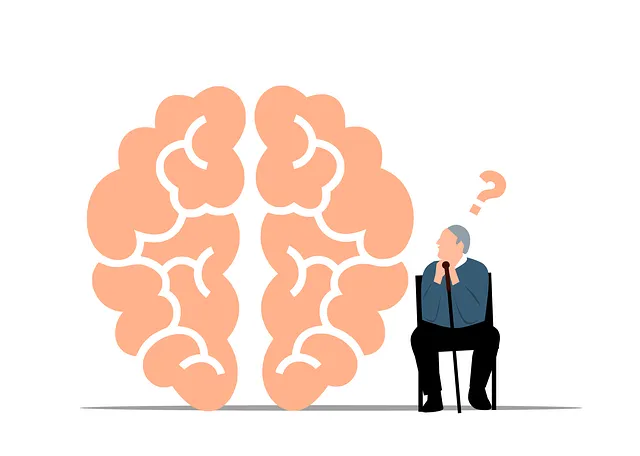Longmont Kaiser Permanente's Stress Management Workshops, organized by their mental health department, are successful due to strategic planning and execution. They tailor content to address specific stress triggers, engage experienced facilitators for inclusive environments, and select appropriate venues and promotional channels. The workshops empower participants with practical tools for managing stress, enhancing mental wellness. Post-workshop follow-ups, including personalized check-ins and feedback surveys, reinforce learning and measure long-term impact, part of the department's broader goal to enhance community well-being.
Stress management workshops are powerful tools for improving employee well-being, as evidenced by the successful programs at Longmont Kaiser Permanente’s mental health department. This article delves into the effective planning and preparation required to organize such workshops, offering engaging sessions that cater to participants’ needs. We explore strategies for post-workshop follow-up and measuring success, ensuring sustainable positive outcomes. By implementing these practices, organizations can replicate the mental health department’s approach, fostering healthier and more productive work environments.
- Planning and Preparation for Stress Management Workshops
- Engaging Participants and Facilitating Effective Sessions
- Post-Workshop Follow-up and Measuring Success (with a focus on Longmont Kaiser Permanente mental health department services)
Planning and Preparation for Stress Management Workshops

The success of Stress Management Workshops organized by Longmont Kaiser Permanente’s mental health department hinges on meticulous planning and preparation. This involves understanding the target audience, their specific stress triggers, and tailoring workshops accordingly. Engaging experienced facilitators who can create an inclusive and supportive environment is paramount. These professionals should be adept at guiding participants through various techniques such as mindfulness exercises, breathing strategies, and cognitive reframing, all of which are crucial components in enhancing mental wellness.
Preparation also includes securing appropriate venues that foster open discussion and interaction, along with sourcing relevant materials like workbooks or handouts. Additionally, promoting the workshops effectively through multiple channels to reach a diverse range of individuals is essential. By prioritizing these aspects, Longmont Kaiser Permanente ensures that their Stress Management Workshops Organization not only informs participants about managing stress but also empowers them to boost their confidence in navigating life’s challenges.
Engaging Participants and Facilitating Effective Sessions

Engaging participants and facilitating effective sessions are pivotal for stress management workshops organized by the Longmont Kaiser Permanente mental health department. To ensure active participation, facilitators should create an inclusive environment that encourages open dialogue and fosters a sense of community. This can be achieved through icebreakers, interactive exercises, and small group discussions that prompt attendees to share their experiences and learn from one another. Utilizing techniques like mindfulness and compassion cultivation practices can significantly enhance the workshop’s impact, offering participants practical tools to manage anxiety relief and navigate stressful situations effectively.
Effective sessions should be structured with a clear flow, incorporating diverse activities such as presentations, guided meditations, and skill-building exercises. Facilitators should tailor their approach to cater to different learning styles, ensuring that each participant feels involved and benefits from the workshop. By combining educational content with hands-on practices, these workshops empower individuals to take charge of their mental well-being, fostering resilience and promoting a healthier balance in their lives.
Post-Workshop Follow-up and Measuring Success (with a focus on Longmont Kaiser Permanente mental health department services)

After facilitating stress management workshops, the Longmont Kaiser Permanente mental health department prioritizes post-workshop follow-up to reinforce learned techniques and gauge participant progress. This crucial step involves personalized check-ins with participants to assess their well-being and adherence to the practices introduced during the sessions. Through these conversations, mental health professionals can offer tailored guidance, address challenges, and celebrate successes, fostering a supportive environment for continuous growth.
Measuring success goes beyond immediate workshop outcomes. The Longmont Kaiser Permanente mental health department utilizes various qualitative and quantitative methods to evaluate the long-term impact of their programs. This includes participant feedback surveys, tracking attendance rates at follow-up sessions, and analyzing improvements in mental health indicators over time. By focusing on both individual progress and program effectiveness, they strive to enhance the overall well-being of the community through their Burnout Prevention initiatives, Mindfulness Meditation techniques, and Community Outreach Program Implementation.
Longmont Kaiser Permanente’s mental health department has successfully implemented stress management workshops, as evidenced by their comprehensive approach. By planning and preparing meticulously, engaging participants through interactive sessions, and following up post-workshop, they’ve enhanced the well-being of many individuals. This strategy, focused on education and support, has contributed to a significant number of positive outcomes among workshop attendees, underscoring the department’s commitment to fostering mental health awareness and resilience in their community.






